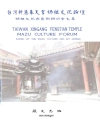A case study of the Chapter of Windesheim and the texts produced there illuminates the female spiritual experience of the Modern Devotion, a northern European movement of the late fourteenth century.
In the last decades of the fourteenth century a new religious movement arose in the northern Low Countries, the so-called Modern Devotion, which had a major influence upon religious life in Europe, and wasparticularly popular withwomen. Until now there has been no study of the women who played a part in the movement, but this book seeks to fill the gap through a case study of the Chapter of Windesheim and the mystical and religious texts its sisters produced, typical of the female spiritual experience of the Modern Devotion. The author analyses texts by such important canonesses as Salome Sticken, Alijt Bake and Jacominje Costers, placing them in the context of daily life in the convent; the anonymous sisterbook of the largest convent at Diepenveen also proves a rich source of historical information. Although the women were all concerned with improving religious life in their convents, their ways of doingso are shown to have varied dramatically, leading to conflict with both other members of the convent, and the male leaders of the Chapter; significant in this regard is Bake’s vision of a mystical spirituality, which ultimately led to her ejection from the convent and exile.
WYBREN SCHEEPSMA teaches Dutch language at the Hogeschool Leiden.
A propos de l’auteur
DAVID F. JOHNSON is Professor of English at Florida State University, Tallahassee.












